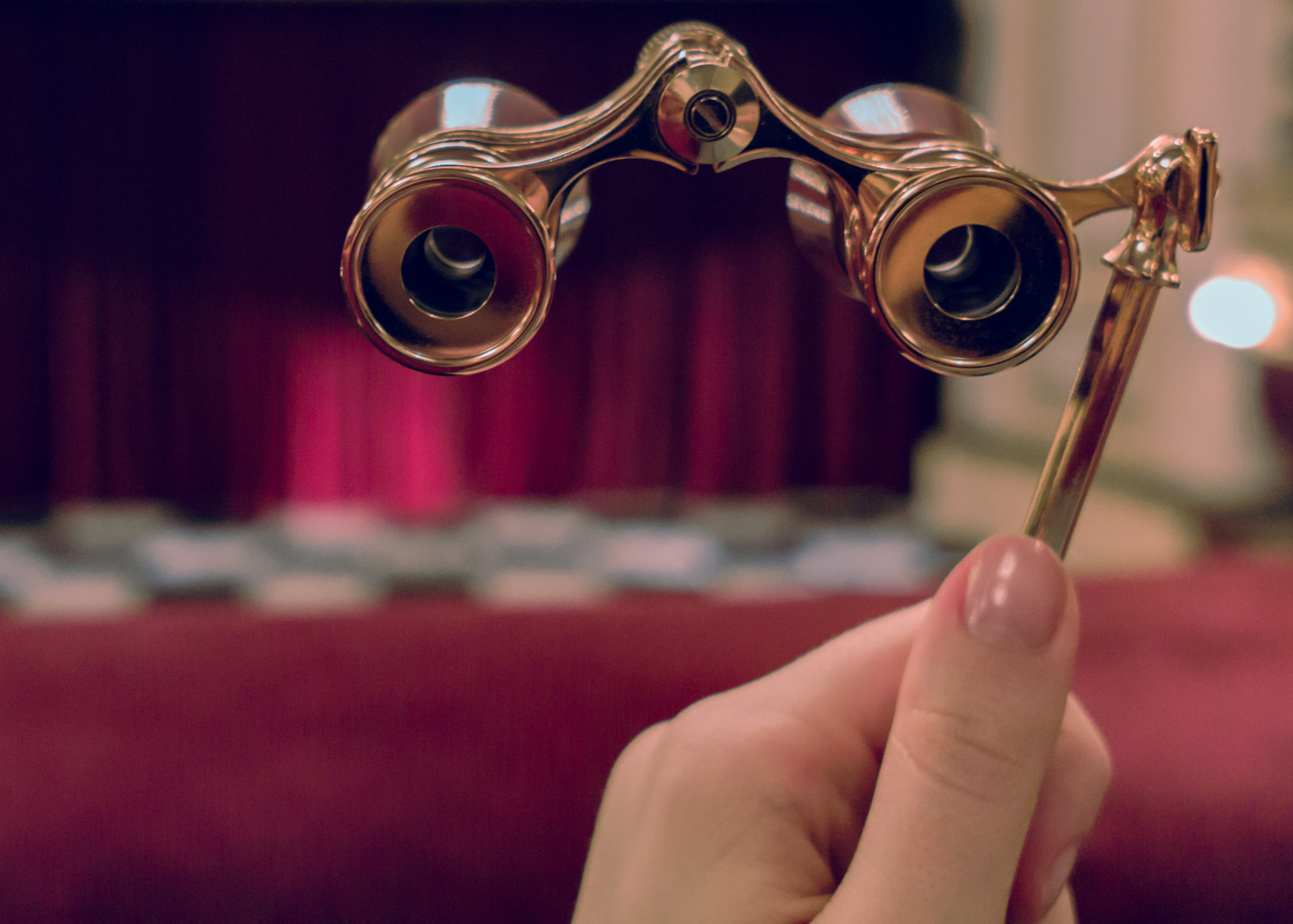My husband likes opera. Me? Not so much. If I had to rate my feelings regarding opera on a scale with “Hate” being 0, and “Love” being 10, I’d probably hover somewhere about a two-and-a-half. That is, if one of my more cultured friends happened to be looking over my shoulder as I filled out the questionnaire. But if I were alone in a darkened room without even a fly on the wall, I would no doubt check the box next to zero.
But in the interest of good sportswomanship, I agreed to accompany my darling to the majestic Metropolitan Opera at Lincoln Center to experience a performance of La Boheme. Even if I don’t appreciate opera, it sounds very urbane in the retelling if someone should inquire as to what I did last Thursday night.
But La Boheme? How bad could it be? At least I was familiar with the libretto. I mean, everyone knows about poor consumptive Mimi. And it’s not as tragic as so many other operas (spoiler alert!) since she’s the only cast member who dies at the end.
Be honest. Generally, opera is not all that much fun. For the most part, the stories involve treachery, tragic heroes, death, madness, love and loss, all related through song. I can’t help but think I could get equally depressed listening to a good old country western album. At much less the cost.
Speaking of cost, opera tickets can be quite expensive. So, we forego the fifth-row center orchestra seats and ride the elevator to one of the upper tiers. We are far from the stage, but the view is good. I can still enjoy the beautiful stage sets and a somewhat diminutive version of the performers.
La Boheme was composed by Puccini in 1893 and is historically one of the most frequently performed operas. So, opera lover or not, I’m sure you’re familiar with the story. But a brief recap never hurts.
The male characters are a group of friends, artists, musicians and writers, living the Bohemian life in the Latin Quarter of Paris circa 1830. In the opening scene the friends are about to depart from their garret apartment to join other friends at a local pub. Rodolfo, the writer and poet, stays behind to put the finishing touches on a story. Shortly, there is a gentle knock on the door. He opens it and beholds a young woman holding an unlit candle. She sings an apology for disturbing him and explains that her candle has blown out. Basically, she came to borrow a match!
Rodolfo invites her in and proceeds to light her fire. She tells him that she’s a seamstress and her name is Lucia, but people call her Mimi, though she doesn’t know why. Neither do we and we never will. But two minutes later, gazing longingly into each other’s eyes, they are professing, in song, of course, their eternal love.
Thank goodness for the required Covid mask, because despite myself I begin to giggle. Who knew that the Italians invented speed dating? Maybe things really did move more quickly back then. The life span was considerably shorter.
Perhaps therein lies my problem with opera. I am too literal. I focus on the wrong things. Instead of enjoying the music, the scenery, the voices, I’m laughing at the absurdity (according to me) of what I just witnessed on the stage.
Of course, the path of love, especially instant love, does not run smoothly. The lovers part, they reunite. They part again. The intervening acts are full of Latin anguish. Lucia, aka, Mimi gets sicker. In the end, she returns to Rodolfo, to die in his bed, and my literalness also makes a comeback.
Mimi is ravished by tuberculosis. Her body is thin and frail. She is barely able to breath. Yet there is this Rubenesque diva belting out her final words of love for her Rodolfo. Tell me, from where is the oxygen coming? Am I really supposed to believe this very robust woman I see before me (at a distance) on the stage is dying? Once again, behind my mask, the giggles overtake me.
And so, my more cultured friends, I hope you won’t think less of me. It took a bit of courage to come out of the closet and share my dirty little secret. But I take comfort in discovering I’m not alone. Through the years, opera has had its critics, far more noteworthy than I. So, I leave you with this quote from one of my heroes, Samuel Longhorn Clemens, better known, of course, as Mark Twain. Sam, I always knew we had something in common. I just didn’t know what it was. Until now.
I have attended operas, whenever I could not help it, for 14 years now. I am sure I know of no agony comparable to the listening to an unfamiliar opera…that sort of intense but incoherent noise which always so reminds me of the time the orphan asylum burned down.



Susan, sooo funny. Sooo perfect. Thanks!
A kindred spirit?
I love the quote. It could only be Mark Twain.
May I suggest you try The Barber of Seville?
I’ve tried. He gives a lousy haircut!
Sam knew his stuff!
Another kindred spirit!
My first experience with opera was one of the German Rings, absolutely agonizing!
OMG! WHo hated you that much?
Another thing we have in common. Also, I love the Mark Twain quote.
Guess the aunts and their Enrico Caruso records didn’t leave us wanting more!
I love how you incorporate Puccini- Twain – and you into this piece- you always leave me with a smile.
Coming from a fellow writer, I am flattered!
Thanks for so gracefully verbalizing my precise feelings about opera.
You too? I AM in good company!
Funny and well put, as always! I’ve only gone to two operas and La Boheme was one of them, about 60 years ago. The other was Carmen, and I only enjoyed it because I was familiar with the music from seeing the movie, Carmen Jones, starring Harry Belafonte., Dorothy Dandridge, and Pearl Bailey! The closest musicals to opera that I did love were Phantom of the Opera, Les Miserables, and Porgy and Bess, which actually was considered a “folk” opera.
Love Porgy and Bess. For some reason I don’t consider that an opera. I also love Gilbert and Sullivan. It’s lots of fun.
Never been to an opera but earlier this year I sat through a three and a half hour performance of the play WHO’S AFRAID OF VIRGINIA WOLF? That was an endurance test like no other.
Want more punishment? Try a German opera!